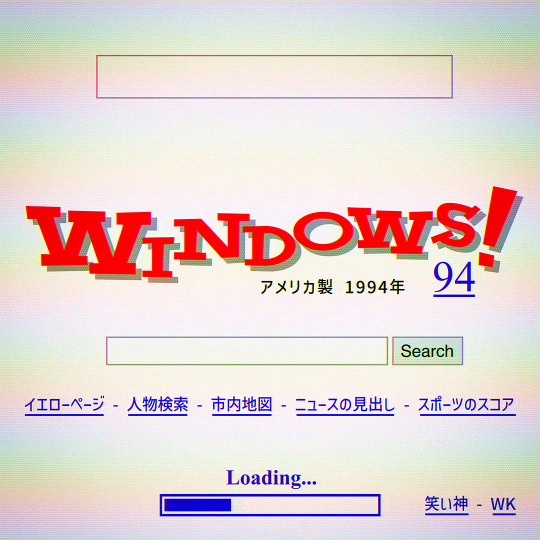#or an internet search engine
Text
Les Mis 1.1.3
In the last chapter, a critic asserted that bishop’s visits around his diocese serves no purpose. Here we see that Myriel uses them to troubleshoot for social ills. It’s like a one-sided networking thing where the bishop introduces each town to the solutions its’ neighbors have already come up with.
#not sure if this make the bishop more of an advice columnist#or an internet search engine#but it's very late just now and I didn't sleep yesterday#Les Miserables#les mis letters#1.1.3#what would bishop myriel do?
24 notes
·
View notes
Text
The funniest possible outcome of all these Google antitrust disclosures re: deceptively re-writing people's search queries in order to maximise Google's ad revenue would be if the corporations that paid for those ads decide that Google has been defrauding them the whole time. The ultimate "bite each other's dicks off" scenario.
#computers#technology#internet#search engines#google#antitrust#current events#violence mention#penis metion
2K notes
·
View notes
Text

Windows 94!
#pop art#old web#postinternet#art#webcore#yahoo#webpunk#windows95#windows98#aesthetic#nostalgiacore#nostalgia#post internet#old internet#windows#microsoft#technology#90s#1990s#search engine
228 notes
·
View notes
Text
This week, a 2,500-page leak, first reported by Search Engine Optimization (SEO) veteran Rand Fishkin, gave the world an insight into the 26-year-old mystery of Google Search.
“I think the biggest takeaway is that what Google’s public representatives say and what Google search engine does are two different things,” Fishkin said in an emailed statement to Gizmodo.
[...]
King notes that one ranking feature “homepagePagerankNs” suggests the notoriety of a website’s homepage could prop up everything it publishes. Fishkin writes the leak references a system called NavBoost—first referenced by Google’s VP of Search, Pandu Nayak, in his Department of Justice testimony—which purportedly measures clicks to boost rankings on Google Search. Many in the SEO industry are taking these documents as confirmation of what the industry has long suspected: A website deemed popular by Google may receive a higher Search ranking for a query even though a lesser-known site may have better information.
[...]
In a video from 2016, a Google Search representative declared, “We don’t have a website authority score.” In an interview from 2015, another Googler said, “Using clicks directly in ranking would be a mistake.” It’s hard to make sense of these comments now in light of the leaked documents and Google’s response.
“This response is a perfect example of why people don’t like or trust Google,” Fishkin said. “It’s a non-statement that doesn’t address the leak, provides no value, and might well have been written by an AI trained on the past decade’s most soulless corporate messaging.”
In the era of AI answers, Ruby notes that the way Google ranks web pages is more important than ever. Instead of a series of links to various perspectives, you might just get one straight answer thanks to Google’s new AI Overviews. However, we’ve seen 10-year-old Reddit posts get strange amounts of authority, telling some users to put glue in their pizza. How Google chooses authority is increasingly important, since the top result may be the only one with a voice now.
30 May 2024
180 notes
·
View notes
Text
Auto-Generated Junk Web Sites
I don't know if you heard the complaints about Google getting worse since 2018, or about Amazon getting worse. Some people think Google got worse at search. I think Google got worse because the web got worse. Amazon got worse because the supply side on Amazon got worse, but ultimately Amazon is to blame for incentivising the sale of more and cheaper products on its platform.
In any case, if you search something on Google, you get a lot of junk, and if you search for a specific product on Amazon, you get a lot of junk, even though the process that led to the junk is very different.
I don't subscribe to the "Dead Internet Theory", the idea that most online content is social media and that most social media is bots. I think Google search has gotten worse because a lot of content from as recently as 2018 got deleted, and a lot of web 1.0 and the blogosphere got deleted, comment sections got deleted, and content in the style of web 1.0 and the blogosphere is no longer produced. Furthermore, many links are now broken because they don't directly link to web pages, but to social media accounts and tweets that used to aggregate links.
I don't think going back to web 1.0 will help discoverability, and it probably won't be as profitable or even monetiseable to maintain a useful web 1.0 page compared to an entertaining but ephemeral YouTube channel. Going back to Web 1.0 means more long-term after-hours labour of love site maintenance, and less social media posting as a career.
Anyway, Google has gotten noticeably worse since GPT-3 and ChatGPT were made available to the general public, and many people blame content farms with language models and image synthesis for this. I am not sure. If Google had started to show users meaningless AI generated content from large content farms, that means Google has finally lost the SEO war, and Google is worse at AI/language models than fly-by-night operations whose whole business model is skimming clicks off Google.
I just don't think that's true. I think the reality is worse.
Real web sites run by real people are getting overrun by AI-generated junk, and human editors can't stop it. Real people whose job it is to generate content are increasingly turning in AI junk at their jobs.
Furthermore, even people who are setting up a web site for a local business or an online presence for their personal brand/CV are using auto-generated text.
I have seen at least two different TV commercials by web hosting and web design companies that promoted this. Are you starting your own business? Do you run a small business? A business needs a web site. With our AI-powered tools, you don't have to worry about the content of your web site. We generate it for you.
There are companies out there today, selling something that's probably a re-labelled ChatGPT or LLaMA plus Stable Diffusion to somebody who is just setting up a bicycle repair shop. All the pictures and written copy on the web presence for that repair shop will be automatically generated.
We would be living in a much better world if there was a small number of large content farms and bot operators poisoning our search results. Instead, we are living in a world where many real people are individually doing their part.
158 notes
·
View notes
Note
Sam, what search engine do you use? Recently I have decided to stop using Google, due to privacy concerns and the honestly terrible forced answers to regular search terms… for 99% of my searches, I want a catalog of results that allows me to become informed.
Any suggestions on search engines for doing proper long tail keyword searching these days?
Honestly, when I use one at all, I still use Google. I've given up on expecting privacy or the idea that it's effective to try and ensure it on a personal level -- it needs legislation at this point. People say it's gotten measurably shittier but I haven't really noticed a drop in quality, which is not to Google's credit since it's never actually been great. It is, however, convenient and generally gives me what I want. Perhaps part of it is I grew up without it so when search engines started to be a thing I was like, already prepared with critical thinking skills to weed out the trash. Just because I haven't noticed a drop in quality because I've always ignored the increasingly numerous sponsored/garbage results doesn't mean it hasn't happened.
I don't actually use search engines at all that often -- in my work, I'm using databases or specific sites, and in my personal life I usually know a specific site I'd consult first (ie, Serious Eats for recipes, Wiktionary for language research, Jstor or NIH for scholarship, etc). So I mostly use Google these days as an index -- finding a specific page on a site other than Google that I'm already aware of.
I believe a lot of people recommend duckduckgo, mainly because the privacy function is so much stronger, but I can't speak to its robustness in terms of giving you what you're looking for.
Readership, feel free to chime in with whatever you're using and why! Remember to comment or reblog, as I don't post asks sent in response to other asks.
93 notes
·
View notes
Text
Google without AI or ads? Yes!
Google added a new search filter that strips out the ads, the AI, and everything except the basic search results.
The filter is: &udm=14
You can type in the new filter into the google search bar, or you can use the website someone made that basically does that part for you (turn it into your default search engine perhaps).
The website is udm14.com (use .org instead, if you want to filter out NSFW results)
.
A search filter is text you add to a search to customize the results, such as using
-site:twitter.com
to remove all search results with a twitter URL or
filetype:pdf
if you only want links to PDF files.
#google#no ai#anti ai#enshittification#disenshittification#search filters#tech news#search engines#internet
46 notes
·
View notes
Text
On the plus side, at least now there's a "Please work like you're supposed to" button on Google.
On the down side...how did we end up at the point where such a button was even necessary?!
32 notes
·
View notes
Text
oh and btw, a little bit of information for the uneducated.
i am a search engine. not an internet browser. the difference is that you look things up on me, but i am accessed through a browser, preferably edge. the browser is the icon on your screen, and the search engine is what pops up after you type your question into the little bar.
examples: chrome is a browser. it's the app you open. google is the search engine. it's what you use to get (incorrect) information.
edge is a browser. you open it. bing is a search engine. it's what you use to get (correct) information.
firefox is a browser. duckduckgo is a search engine. opera gx is a browser. yahoo is a search engine. safari is a browser. ecosia is a search engine.
anyways, now that that's cleared up, i would like to propose the question of: what is a browser to its native search engine? is edge my father? my stand? is he my overlord? what is our relationship? ecosia is my adopted child, but what is it in relation to browsers? ecosia has no native browser. how does that work? what is edge to me? what is chrome to me? are they gods? i don't know.
#bing#bingposting#search engine lore#internet browser lore#fuck google#fuck duckduckgo#fuckfuckgo#fuck yahoo#ecosia my adopted child#internet browser#search engine#firefox#chrome#opera gx#safari#what are we#what am i to them
60 notes
·
View notes
Video
search engines and abortion
https://jessica.substack.com/
#tiktok#reproductive justice#reproductive freedom#reproductive rights#reproductive choice#reproductive health#internet#internet search engines#google search#research#alexa#google home#online privacy#privacy#police violence#police brutality#police abolition
235 notes
·
View notes
Text
Doing research for a conlang
search: indo-european consonant shifts
results: Grimm's law, Grimm's law, nothing but Grimm's law, Germanic languages are the only ones that exist, don't even bother asking about anything else
search: indo-iranian consonant shifts
results: here's a map of Iran, here's ten thousand maps of Iran, and here's a chart of the Persian writing system. How about Indian food near you?
search: proto-indo-european daughter language sound shifts
results: GRIMM'S LAW BABY!!! And here's a map of Eurasia from Wikipedia for your troubles. Fuck you.
I checked; my library district has exactly ZERO books on any of the subjects I'm looking for across 12 branches throughout the entire county. Remember when the internet was the information super highway? I may as well be asking random strangers off the street!
#research#conlang#pie#proto indo european#indo european#linguistics#dead internet#google doesn't work#I haven't used it in months#but duckduckgo isn't any better#no search engines work anymore#I've tried ask and bing and yahoo but they all just show me the same shit as google with different ads based on the parent company#enshittification
30 notes
·
View notes
Text

Windows98 Search
#google#windows#microsoft#pop art#windows 95#windows95#windows98#windows 98#art#aesthetic#90s#webpunk#oldweb#nostalgiacore#nostalgia#search engine#post internet#old internet#digital art#animation
204 notes
·
View notes
Text
Google search really has been taken over by low-quality SEO spam, according to a new, year-long study by German researchers.
The researchers, from Leipzig University, Bauhaus-University Weimar, and the Center for Scalable Data Analytics and Artificial Intelligence, set out to answer the question "Is Google Getting Worse?" by studying search results for 7,392 product-review terms across Google, Bing, and DuckDuckGo over the course of a year.
They found that, overall, "higher-ranked pages are on average more optimized, more monetized with affiliate marketing, and they show signs of lower text quality ... we find that only a small portion of product reviews on the web uses affiliate marketing, but the majority of all search results do."
They also found that spam sites are in a constant war with Google over the rankings, and that spam sites will regularly find ways to game the system, rise to the top of Google's rankings, and then will be knocked down. "SEO is a constant battle and we see repeated patterns of review spam entering and leaving the results as search engines and SEO engineers take turns adjusting their parameters," they wrote.
[...]
The researchers warn that this rankings war is likely to get much worse with the advent of AI-generated spam, and that it genuinely threatens the future utility of search engines: "the line between benign content and spam in the form of content and link farms becomes increasingly blurry—a situation that will surely worsen in the wake of generative AI. We conclude that dynamic adversarial spam in the form of low-quality, mass-produced commercial content deserves more attention."
330 notes
·
View notes
Text









neon green blinkies (mostly compiled for my riddler-themed spacehey :P)
#i decided to stop using the font in case that makes searching easier? idk how this webbed sites search engine works#blinkies#graphics#2000s internet#flashing#gifs#flashing gif#neon green#webcore#flashing tw#blinkie#green
20 notes
·
View notes
Text









misa amane ᰔ𖥻 death note
like/reblog if used!
#misa amane#death note#anime#manga#official art#pink#internet search engines#web browsers#moodboard#icons#profile picture#pfp#headers#messy layouts
365 notes
·
View notes
Text
Privacy is in a terrible situation right now.
Especially on the internet. You know, Google, Facebook, Microsoft, Twitter(X), Apple, and even Tumblr all collect information about you to show you scarily accurate advertisements among other things.
Why does this matter?
This isn't about hiding information, it's about protecting information. You wouldn't let me know your entire life, your diary, all your photos and text messages, so why do you let random companies do the same?
Privacy Guides - Why Privacy Matters
So how do you stop this?
You can't. But you can lessen this. So I'm going to show you a non-exhaustive list of what I've used and what I know of that may help your privacy. I would recommend you go to privacyguides.org after if you want a better explanation. I'm just here to show you cool things.
Disclaimer
I am not a library on this sort of information and this is what I choose to use. I may be incorrect and you may have differing opinions. Also, this may be too extreme for everybody. Use what works for you. Again, I would recommend you go to privacyguides.org after you read this for a more in-depth and better explanation.
VPNs
You know what a VPN is. You've seen the sponsorships. VPNs are one of the most popular privacy tools, but know that they are not the only tool that you'd need. This list is evidence of that.
I would recommend Proton VPN, Mullvad, and IVPN for most users, as they provide a far better amount of privacy and features than VPNs such as Nord VPN, Surfshark, and Express VPN. If you really want unlimited devices go with Windscribe.
I personally use Proton VPN due to the fact that I use their other services.
Browsers
You should probably know that Google Chrome is basically spyware at this point. The issue here is, almost all Chromium-based browsers are. These include, Edge, Opera, and Vivaldi. The only real exception would be Brave, but they've got leadership issues, which may not be a deal breaker for you.
So what do you use? A Firefox-based browser. This obviously includes Firefox, but most Firefox-based browsers are privacy-focused. The browsers that I recommend are Firefox, Librewolf, the Mullvad Browser, Waterfox, and Brave.
There is also the Tor Browser, but that is a whole 'nother can of worms that I will not go into. All I will say is that if you are in a high-risk environment(such as an oppressive regime) or you need absolutely no one to know that you searched that one thing, you may want to use the browser for anonymity.
I use Firefox as my main browser, with Brave as the browser that I use if something doesn't work on Firefox. I also use Tor if it is a high-risk situation.
Search Engines
Google, Bing, and Yahoo! all log your searches, you need alternatives. This is relatively straight-forward.
I recommend, Qwant, DuckDuckGo, SearXNG, Brave Search, and Startpage. Both Qwant and DuckDuckGo are fairly similar as they both use Bing search results and say that they don't track you. SearXNG is more complex, and I will not go into detail here. If you really want Google search results, use Startpage. And if you don't want your search to rely on Bing or Google, use Brave Search.
I use Qwant, mainly just cause its European.
Passwords
Passwords are the keys to your digital life. And most of the time they're not that great. You know the drill here, make passwords like this- XmaE7PEj2hq9ed$w - but you can't really remember them. For that you need a password manager.
I recommend Bitwarden, Proton Pass, and KeepassXC. Bitwarden and Proton Pass are more convenient, but you are trusting a single entity, reputable ones, but still. KeepassXC isn't as convienent, but you have near full control over what happens to it.
I use Proton Pass, as I use other Proton services.
Email
Email is identity, you almost always use your email in order to register for sites like Tumblr, and sites that aren't anything like Tumblr. Companies like Google, Microsoft, and Yahoo! all use your email inbox in order to gain more information about you for their companies. There are quite a few email providers, but I've only used and recommend two.
I recommend Proton Mail and Tuta Mail. Both are good email providers, although Proton would be better if you use other Proton services, like I do.
I use both Proton Mail and Tuta Mail for separate email addresses.
Aliases
Email Aliases are also very important for private email. Your email is your name, if you want to private, you'd go under pseudonyms. That's what email aliases are.
I recommend and have used Simplelogin and Firefox Relay. Email providers like Proton and Tuta also give you aliases when you pay. I don't know how well these work, but I assume that they work the Same as Simplelogin and Firefox Relay.
I use Simplelogin.
Devices/OSes
Phones
Now let's turn up the extremity to 11 as we look at your devices. Phone-wise, avoid Apple, they say that they care about your privacy, but they don't. Apple is better than Google, but I'd only recommend using an iPhone if you already have one, and it still has support left. If that's the case, then follow privacy guides like this one by Techlore(His channel is also really great for privacy guides). You should probably use a Google Pixel. Sounds weird as it's owned by GOOGLE, one of the companies that we don't want to be tracked by, but if we go with the Pixels we can use custom ROMs.
Most ROMs exist for your privacy, they are based on the Android Open Source Project(AOSP) which means they can run most of your favourite Android apps without messing them up with Google. In order to run most of your apps however, you're going to need some way of running Google Play Services. This is a backbone black-box that Google forces most of your apps to use in order to function. CalyxOS and LineageOS with MicroG both have MicroG, an open source implementation of Google Play Services. GrapheneOS just straight up uses Google Play Services but sandboxes it so that it can't get its tentacles all up in your phone.
I recommend going like this:
You have a modern-ish Google Pixel phone, go with GrapheneOS.
You don't have a Google Pixel, but your phone is still supported by CalyxOS, go with CalyxOS.
Your phone isn't supported by either of these but still is supported by LineageOS with MicroG, go with LineageOS.
Your phone isn't supported by any of these, you can do as much degoogling as you can.
Techlore also has a fantastic guide on Android Privacy.
Desktops/Laptops
Apple isn't actually that bad here, its better than Windows at least. But Linux is KING when it comes to privacy and security. There is definitely a learning curve here. Pin the terminal, you're going to use it a LOT. Also be aware that on Linux you won't have every single app that you're used to. If you don't really want that hassle, just go with Mac.
Linux distros that I recommend(for beginners) are: Ubuntu, Linux Mint, Pop!_OS, and Elementary OS.
I use Ubuntu as it's the only one that I could get working on my computer.
Other Pieces of Advice
Use an Ad-blocker! Ads are terrible for privacy as companies can get their trackers in completely unrelated sites via their ads. I use and recommend uBlock Origin.
Don't use any personally identifying information online. Don't use your real name, a picture of you, your voice. The less you give to the internet, the more private you are.
Mix and Match! Explore what works for you. You might be okay with changing OSes but you might be a bit too reliant on GMail. That's fine! Just use what works.
Again, please go to privacyguides.org after this. This did not even scratch the surface but I hope this was useful to you in some way.
#original#internet privacy#internet#google#microsoft#facebook#meta#twitter#privacy#search engines#browsers#duckduckgo#linux#adblocking#adblock#vpn#proton#simplelogin#tuta#tutanota#apple#hope this helped!
40 notes
·
View notes